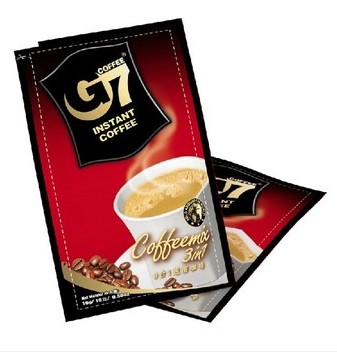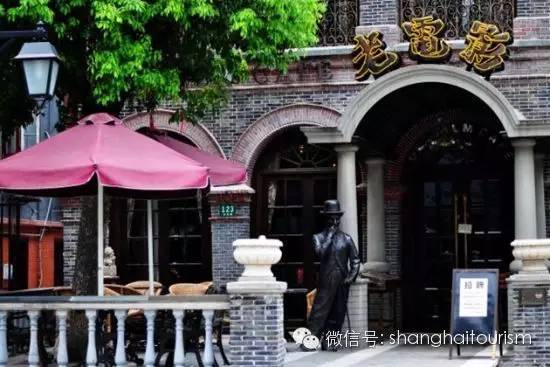The first wave of instant coffee in the world is not in South Korea, and its market share is down 9.4% from the same period last year.

China Economic Network, Beijing, Dec. 8 (Reporter Wu Jing) according to Yonhap news agency, the industry data released by South Korea's Ministry of Agriculture, Food and Rural Affairs (Ministry for Agriculture, Food and Rural Affairs, hereinafter referred to as MAFRA) on Tuesday showed that although South Korea's total coffee consumption showed an upward trend in 2015, the market share of instant coffee continued to decline. More and more Koreans like to patronize coffee shops or buy other types of coffee drinks.
Retail sales of instant coffee in South Korea this year totaled 1.05 trillion won ($895.6 million), down 9.4% from the same period last year and 14.7% from the same period in 2012, according to the data.
Total sales of instant coffee in September were 751.3 billion won, down 5.7 per cent from a year earlier, according to MAFRA.
It is reported that more than 80 per cent of the market share of instant coffee in South Korea has long been occupied by Dongsuh Foods, with Nanyang Dairy (Namyang Dairy Products) and Nestle Korea ranking second and third respectively, with a market share of 12 per cent and 4.2 per cent respectively.
Instant coffee, which has been popular in South Korea for decades, is no longer popular today, while high-end coffee shops are springing up all over the country, offering freshly ground coffee and espresso drinks, which are popular among young people. At the same time, other coffee products, such as ready-to-drink coffee and coffee capsules, also divert some consumers.
In addition, instant coffee has been criticized for its high sugar and fat cream problems, prompting coffee manufacturers to regain market confidence by reducing sugar intake and looking for healthier alternatives.
According to the Korea Customs and Trade Development Institute, South Korean adults consume an average of 341 cups of coffee a year, an increase of 23.1% over 2009.
Source: China Economic Network
Important Notice :
前街咖啡 FrontStreet Coffee has moved to new addredd:
FrontStreet Coffee Address: 315,Donghua East Road,GuangZhou
Tel:020 38364473
- Prev

The best travel route in Shanghai is recommended. You must not miss it.
What is the most fragrant thing in Shanghai? When you think about it, most people's answer will be coffee. In his Shanghai style Qingkou, Zhou Libo vividly shows the culture of Shanghainese drinking coffee. Allah Shanghainese grew up eating coffee. Drinking coffee is an indelible step in life, whether it is old Shanghai or the new Shanghai. To experience the aroma of Shanghai coffee, let's walk like this: 2 read a coffee legend Coffee is a ship
- Next

The 1980 HONDA CB750F retrofitted vintage coffee car was awesome!
Guide: customizing a motorcycle may take a few days, or it may take weeks or months. But it took more than two years for the maker of this new Honda CB cafe coffee mount, which is derived from a classic motorcycle model, but when you see such a beautifully finished photo, you will realize it is worth the wait. It is reasonable that this CB took so long to build.
Related
- The ceremony is full! Starbucks starts to cut the ribbon at a complimentary coffee station?!
- A whole Michelin meal?! Lucky launches the new "Small Butter Apple Crispy Latte"
- Three tips for adjusting espresso on rainy days! Quickly find the right water temperature, powder, and grinding ratio for espresso!
- How much hot water does it take to brew hanging ear coffee? How does it taste best? Can hot water from the water dispenser be used to make ear drip coffee?
- What grade does Jamaica Blue Mountain No. 1 coffee belong to and how to drink it better? What is the highest grade of Blue Mountain coffee for coffee aristocrats?
- What are the flavor characteristics of the world-famous coffee Blue Mountain No. 1 Golden Mantelin? What are the characteristics of deep-roasted bitter coffee?
- Can I make coffee a second time in an Italian hand-brewed mocha pot? Why can't coffee be brewed several times like tea leaves?
- Hand-brewed coffee flows with a knife and a tornado. How to brew it? What is the proportion of grinding water and water temperature divided into?
- What is the difference between Indonesian Sumatra Mantinin coffee and gold Mantinin? How to distinguish between real and fake golden Mantelin coffee?
- What does bypass mean in coffee? Why can hand-brewed coffee and water make it better?

